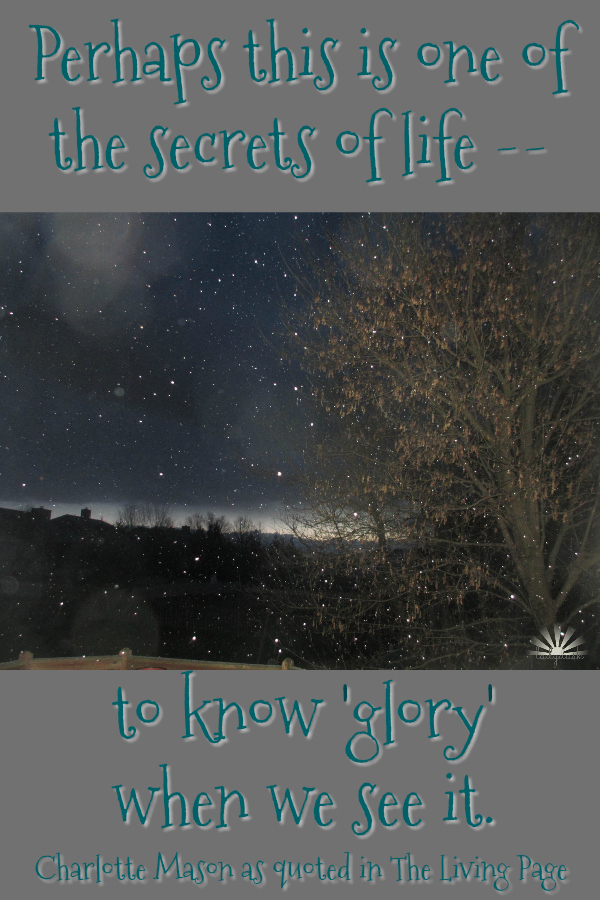Wednesdays with Words: Glory When We See It

I’m reading The Living Page – finally, after owning it for a number of years. I knew I’d enjoy it, but I didn’t know how much. So many contemplatable phrases. The ease of descriptive language Bestvater uses is simply beautiful.
But, the thought I want to contemplate first is from Miss Mason, herself. Bestvater’s opening epigram is a Mason quote I’ve never heard or read before:

I had meant to read this book a year ago during my year of Attend! but it’s coming at a beautiful time, now, too. As I’ve said before, my previous Words for the Year tend to stick with me.
In the glossary, Bestvater defines “glory” as “All the goodness of God.” So, the secret to life, Mason argues, is to see God’s goodness all around us. I would say that it’s easy to see glory in a morning like the picture above where all is still and gentle and quiet but for some little flakes of snow. We can see the beauty of that moment. But, I might argue, that it is best if we can see glory in every circumstance. To be content with our lot. To be at peace in the moments that seem not peaceful or beautiful, but to see God’s hand at work in the sanctification of our lives – in the daily squabbles, in the terrible traffic, in the tensions between us.
The Living Page, the “keeping” that Mason encourages and Bestvater has brought to the fore, can help us with this seeing. Whether in nature, or in the action of characters in history or novel, or in the ideas drawn out of our reading, God’s hand in providence and creation as he works out his decrees can be seen if we but open our eyes. The Westminster Shorter Catechism talks about it this way:
Q. 7. What are the decrees of God? A. The decrees of God are his eternal purpose, according to the counsel of his will, whereby, for his own glory, he hath foreordained whatsoever comes to pass.
Q. 8. How doth God execute his decrees? A. God executeth his decrees in the works of creation and providence.
God’s eternal purpose – working all things together for good – is the ultimate goal. If we are to see it, even in shards or glimpses or out of the corner of our eye, practicing the habit of noticing of seeing of observation is absolutely necessary.
I can say, then, with Mason, that “perhaps this is one of the secrets of life–to know glory when we see it.” Then can we glorify God and enjoy him forever.
‘);
